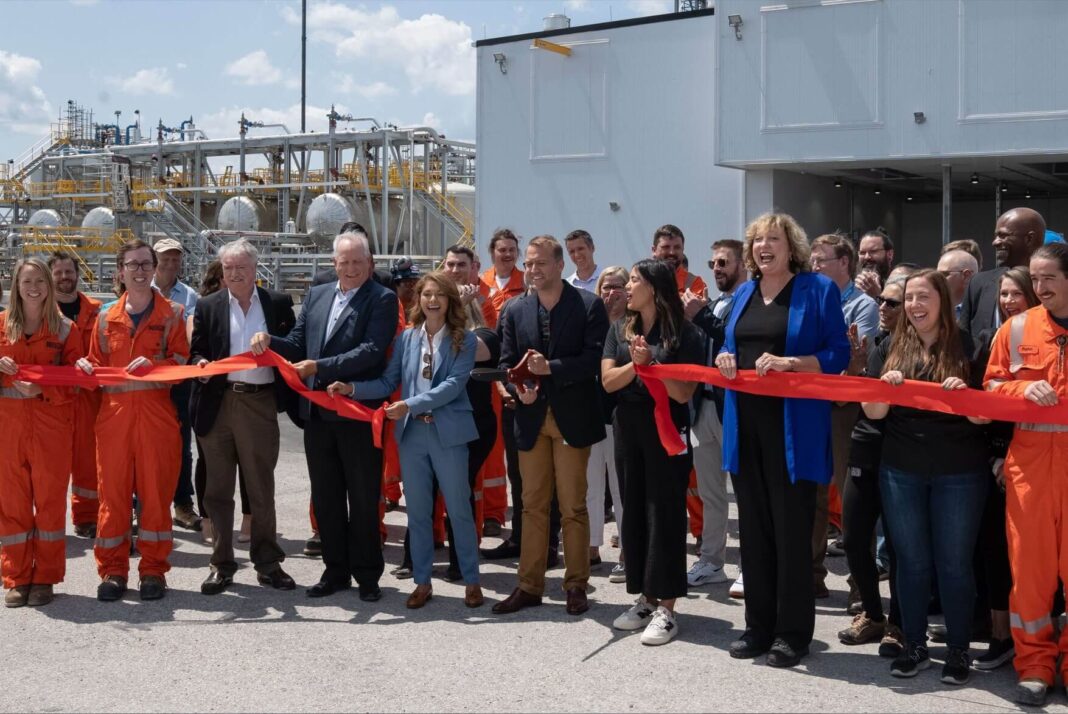The first commercial plant in the world to manufacture a chemical building block for making plastics out of wood chips has opened in Canada.
Using a process known as biochar, Californian-based Origin Materials has devised a method to produce Chloromethylfurfural (CMF), a low or zero-carbon product.

Tad Matheson, Site Manager at Arlanxeo Bioindustrial Park in Ontario, stated that production will start on August 19 if all goes according to plan.
The breakthrough is part of a research project called ‘Origin 1’, the first ‘zero carbon’ product developed by Origin Materials.
A second research project, ‘Origin 2’ is expected to be finalised in mid to late 2025.
Origin is the world’s leading carbon-negative materials company.
The Origin platform turns the carbon in biomass into valuable materials, eliminating the need for fossil resources and capturing carbon.
It has partnered with 26 of the world’s largest multinationals, including LVMH, Ford, Nestle and PepsiCo and commissioned consulting firm Deloitte to conduct a Life Cycle Analysis on its technology.
Origin Materials uses state-of-the-art technology for the Sarnia plant that converts woody biomass into CMF.
According to Origin, the addressable market for the technology will exceed USD 1 trillion.
It will “include clothing, textiles, plastics, packaging, car parts, tires, carpeting, toys and fuels that are carbon negative, or nearly carbon negative, and fully recyclable.”
The Canadian government contributed CAD 23 million toward the CAD 130 million plant.
Twenty-four employees are already working at ‘Origin 1’; several more are still needed, including two engineers and support workers.
Origin Materials intends to build a large-scale plant in Louisiana, Origin 2, where co-CEO John Bissell said the ethylene supply was more dependable and at a more predictable price.

“Sarnia has ethylene but not something we could bet on. It’s not as deep or as large of a market,” he said.
Bissell also acknowledged Murray McLaughlin, the former executive director of Bioindustrial Innovation Canada, who initially enticed him to consider locating the plant in Sarnia.
The two men met at a conference in California in 2011, and McLaughlin convinced Bissell to travel to Sarnia and see what the community offers.
Current BIC executive director Sandy Marshall was also instrumental in bringing the plant here and said Origin’s technology could “fundamentally impact society.”






